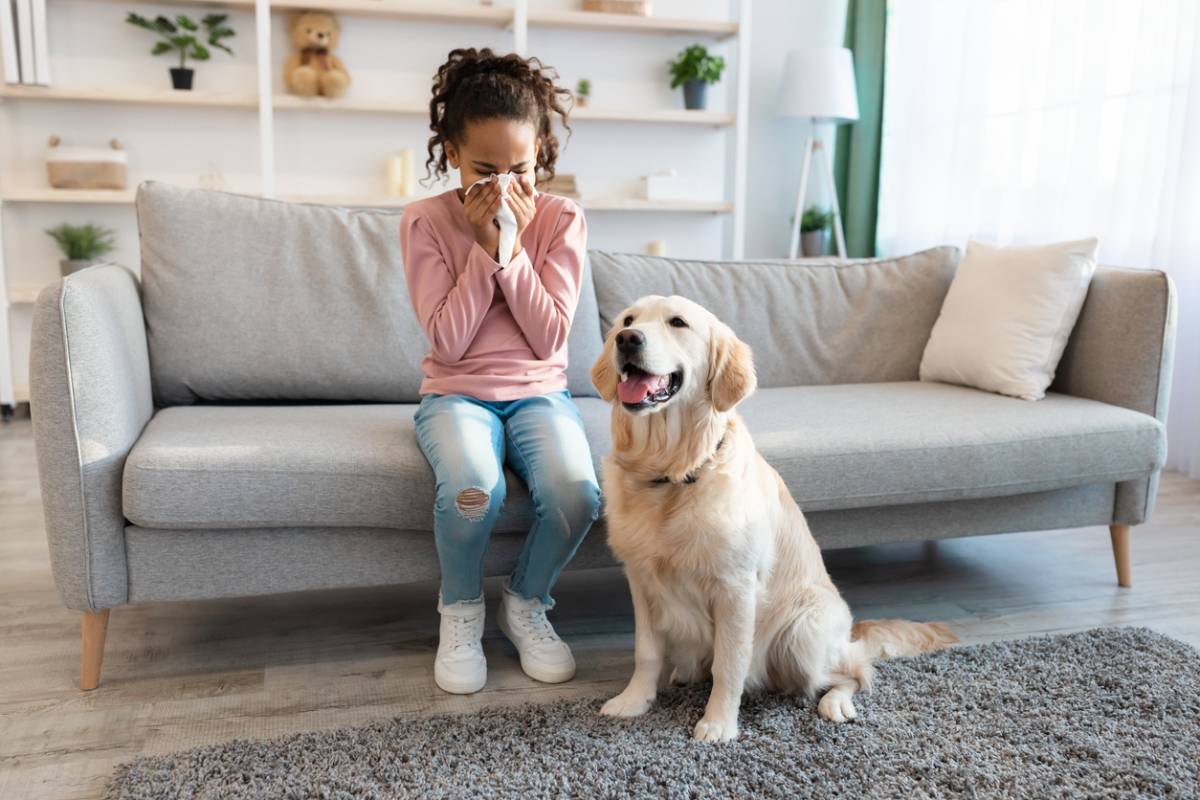Millions of children are impacted by allergies each year. In fact, research has shown that 5.2 million children have some form of an allergy. There are a number of different types of allergies, including airborne, food, insect, chemical, and medicinal allergies. As a parent you may wonder, why do kids develop allergies? Below you will find helpful information about children’s allergies and effective treatment options.
Why Do Kids Develop Allergies?
Developing allergies is often hereditary. This means that many allergies can be passed down genetically from parents to children. However, it is not a guarantee that a child will develop their parents’ allergies. Children with parents who have allergies have an increased likelihood of developing allergies, but not inheriting the specific allergy their parent has. The particular allergy the parent has may not be the same one the child ends up developing.
In some cases, children can develop allergies even if their parents don’t have allergies. Children allergic to one thing are also often allergic to a number of things, including cross-reactions. Cross-reactions involve allergic reactions for similar types of substances. For example, a child allergic to birch pollen may have an allergic reaction to an apple because they share the same protein. This is why it is important to get your child treatment to know all of the risks that come with their unique allergies.
Allergies and the Immune System’s Response
When children are exposed to allergens, their immune system believes that it is harming their body. Despite the mistake, this response results in their body overreacting to the substance. The immune system treats the allergen as invasive and attempts to fight it off.
The child’s immune system creates antibodies which cause certain cells to release chemicals into the bloodstream to “fight” the allergen. We refer to the chemicals as “histamines” and they cause an allergic reaction. Allergic reactions can impact a number of different areas, including your child’s skin, lungs, throat, nose, eyes, and gastrointestinal tract. This will happen in the future when your child is exposed to the same allergen so it’s important to ensure your child receives effective allergy treatment in New York.
Types of Allergies
There are a number of types of allergies that can impact children.
Food Allergies:
The most common food allergies that can impact children include dairy, eggs, fish, shellfish, peanuts and tree nuts, soy, wheat, and sesame.
Airborne Allergies:
The most common airborne allergies that can impact children include pollen, mold, dust mites, pets, and cockroaches.
Chemical Allergies:
Some chemicals found in cosmetics or household items can cause allergic reactions. Common chemical reactions can come from household cleaners, pesticides, and even dyes. One of the chemicals in these products often causes a reaction in the form of hives.
Insect Bites and Stings:
Many children find themselves impacted by allergies caused by bee stings or even pests. Common household pests like cockroaches or mice can cause allergies in children.
Medications:
Antibiotics and over-the-counter medications can be common culprits that cause allergies in children.
Symptoms of an Allergic Reaction
If you notice your child experiences one or more of the following symptoms, contact an asthma doctor in NYC.
- Red, itchy, or watery eyes or skin
- Nasal issues, such as stuffy nose, sneezing, itching, or a runny nose
- Itching in the nose, ears, or on the roof of one’s mouth
- Hives or itchy welts
- Itchy rash
- Symptoms similar to asthma, including shortness of breath, coughing, or wheezing
- Severe reactions include low blood pressure, fainting, diarrhea, vomiting, trouble breathing, and even death
Allergy Treatment
Getting treatment as soon as possible is best when it comes to your child’s allergies. Dr. Mayank Shukla at the Asthma & Sleep Institute has helped countless children who are impacted by allergies. Contact his office today for an appointment!

